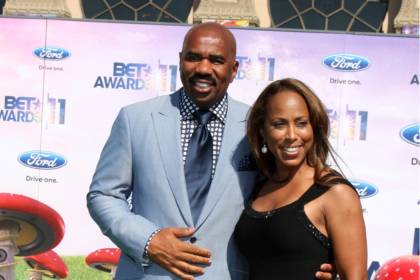The entertainment world found itself buzzing again as Will Smith delivered an incendiary freestyle performance that directly confronted the lingering controversy surrounding his 2022 Academy Awards altercation with comedian Chris Rock. The performance, which aired on Charlie Sloth’s “Fire in the Booth” in the United Kingdom, marked a significant moment in Smith’s ongoing journey of public rehabilitation and artistic expression.
The freestyle session represented more than just a musical showcase—it served as Smith’s most direct artistic response to the incident that fundamentally altered his career trajectory and public perception. Through carefully crafted verses, the Philadelphia native demonstrated his intention to reclaim his narrative while addressing the complex emotions that have defined his recent years.
The power of artistic expression
Smith’s decision to address the controversy through rap reveals the enduring influence of his musical roots. Before becoming one of Hollywood’s most bankable stars, Smith established himself as a formidable rapper alongside DJ Jazzy Jeff, earning Grammy recognition and commercial success throughout the late 1980s and early 1990s. His return to the microphone for this particular performance carried symbolic weight, representing a return to his authentic artistic voice during a period of intense scrutiny.
The freestyle format itself provided Smith with an ideal platform for unfiltered expression. Unlike scripted interviews or prepared statements, freestyle rap demands spontaneity and authenticity — qualities that allowed Smith to convey his perspective with raw emotional intensity. British hip-hop culture’s emphasis on wordplay and confrontational lyricism provided the perfect backdrop for Smith’s message, creating an environment where he could explore themes of accountability and personal growth without traditional media constraints.
Confronting consequences and growth
The Academy Awards incident of March 2022 represented a watershed moment that sparked widespread debate about comedy’s boundaries, respect for medical conditions, and appropriate responses to perceived slights. The comedian’s remarks about Jada Pinkett Smith’s appearance, specifically referencing her hair condition related to alopecia, triggered an impulsive response that reverberated throughout the entertainment industry.
The Academy of Motion Picture Arts and Sciences imposed a 10-year ban on Smith’s attendance, while numerous film projects were postponed or canceled. This unprecedented public reckoning forced Smith into a period of introspection, with his subsequent apology videos and interviews revealing someone grappling with the weight of his actions and their far-reaching consequences.
The psychology of public rehabilitation
Smith‘s artistic response to the controversy illuminates the complex psychology of celebrity rehabilitation in the social media age. The traditional pathways for public redemption — strategic interviews, charitable work, and carefully orchestrated comebacks — have evolved in an era where authentic expression often resonates more powerfully than manufactured apologies.
His acknowledgment of struggling with approval addiction reveals deeper psychological patterns that contributed to the original incident. The pressure to maintain a carefully crafted public image, combined with the intensity of live television and personal triggers, created a perfect storm that resulted in the unprecedented breach of professional conduct.
The rapper’s description of confronting previously unexplored emotional territory suggests a commitment to genuine personal growth rather than superficial image rehabilitation. This introspective journey, documented through various interviews and now artistic expression, demonstrates the complex process of rebuilding one’s reputation while maintaining authenticity.
Industry impact and cultural conversations
The incident’s ripple effects influenced broader industry conversations about conduct standards and mental health support for performers. Comedy clubs, award shows, and entertainment venues began implementing more explicit guidelines regarding appropriate behavior and consequences for violations.
The situation also sparked important discussions about alopecia awareness and the impact of appearance-based humor on individuals dealing with medical conditions. Smith’s freestyle performance contributes to ongoing cultural conversations about redemption and accountability, offering an alternative model for celebrity crisis management that prioritizes authentic expression over calculated public relations strategies.
Looking toward the future
Smith’s artistic output provides insight into his psychological and professional evolution as he navigates the aftermath. The freestyle performance suggests a willingness to engage directly with difficult topics rather than avoiding them through traditional media management approaches.
The entertainment industry’s response to his rehabilitation efforts will likely influence how similar situations are handled in the future. The ultimate measure of Smith’s comeback will depend on his ability to demonstrate sustained personal growth and professional excellence, with his return to music serving as an ongoing test of his rehabilitation and the industry’s capacity for redemption narratives.
















